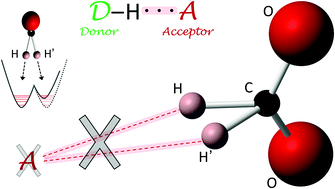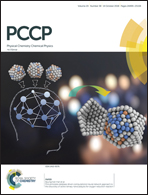Disorder in the hydrogen-atoms uninvolved in hydrogen bonds in a metal–organic framework†
Abstract
Organic and hybrid materials are emerging classes of materials with interesting properties inclusive of ferroelectric and magnetic ordering. They also offer the possibility of proton disorder that is of fundamental importance and useful for applications. In materials that exhibit proton disorder, such disordered-protons usually participate in the hydrogen bonds. Unlike the cations that host the disordered-sites, it is discovered in metal guanidinium formates (C(NH2)3M2+(HCOO)3) that the proton disorder is in the anionic framework. This study based on single-crystal neutron diffraction uncovers the presence of disorder in the formato-hydrogens of metal guanidinium formates regardless of their symmetry. The target materials exhibit various types of potential energy surfaces. Here the proton disorder for the first time is identified in the hydrogen atoms that neither participate in the hydrogen bonds nor in physisorption. A future challenge is to understand the influence of this phenomenon on the physicochemical properties of various classes of materials.



 Please wait while we load your content...
Please wait while we load your content...